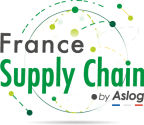European Disability Week: France Supply Chain strengthens its commitment to inclusion and disability in the supply chain
Disability and employment: concrete solutions for the entire supply chain
To mark the 29th European Week for the Employment of People with Disabilities (SEEPH), France Supply Chain, via its Lab Richesses Humaines, organized a groundbreaking masterclass on November 12, 2025, entirely devoted to inclusion and disability in the Supply Chain.
The event brought together companies, institutional partners, associations and schools, creating a strong collective dynamic around three main themes:
integration and job retention.
recruitment
integration and job retention.
Disability policy: a strategic challenge for corporate performance
Speakers emphasized that a disability policy cannot stand alone: it must form part of the company's overall strategy and make a lasting contribution to collective performance. According to the forward-looking study Entreprise, travail et handicap, in 2025, 62% of managers consider the inclusion of disability to be a strategic issue, but only 28% integrate it into their CSR policies, highlighting a significant potential for improvement.
These include initial diagnostics (Agefiph type), awareness-raising and ongoing training, and the creation of a network of in-house disability contacts at all sites. The approach must be progressive, adapted to the size of the company, and supported by an ecosystem of internal and external players (Agefiph, Cap Emploi, ESAT, vocational training structures, adapted companies, etc.).

"Working on inclusion has a positive impact on commitment, loyalty and collective practices," the managers reminded us. Indeed, studies indicate that the economic performance of a diverse company is 35% higher than that of a homogeneous organization."


Recruitment: change your outlook and focus on skills
Only 20% of people with disabilities require job accommodation. For example, most chronic illnesses (diabetes, epilepsy, HIV, etc.) require organizational adjustments, such as flexible working hours or part-time work. On the other hand, if the disability requires adaptation, companies can benefit from assistance in adapting work situations.
The speakers identified several essential levers for better recruitment:
- focus on skills before constraints,
- emphasizeprofessional immersion and real-life situations,
- train HR staff in non-discriminatory recruitment,
- create a climate of trust to enable candidates to declare their disability and benefit from better support.

"We find that in Europe, and particularly in France, HR staff are still too rarely trained in non-discriminatory recruitment and its methodology," stresses the CSR Director of a luxury group.

Integration and job retention: anticipation and co-construction
Feedback from the companies and partners present highlighted the following best practices:
- anticipate needs and adapt jobs,
- set up the job through a progressive situation,
- encourage the expression of needs through regular meetings,
- mobilize a multi-disciplinary team (HR, managers, occupational physicians, occupational therapists, etc.),
- instill a culture of safety, benevolence andattentiveness.
These approaches are based on tried and tested tools: PMSMP, PECF, fun awareness-raising activities and inspiring testimonials.
Concrete recommendations to accelerate the sector's transformation
France Supply Chain encourages companies to define a structured, progressive and realistic disability policy, to strengthen partnerships (Agefiph, Cap Emploi, ESAT, adapted companies) and to communicate in a regular, inspiring and even playful way, to create a real inclusive corporate culture.


"Inclusion isn't just a means to an end: it's a lever for performance, collective well-being and everyone's responsibility," stresses Madeleine Deby, HR Manager at CHEP and co-leader of France Supply Chain's Lab Richesses Humaines.

Key figures for inclusion in 2025
- Employment rate: In France, only 41% of people with disabilities are employed, compared with 69% of the general population. The unemployment rate for disabled people remains twice as high (12%) as the national average.
- Adapted companies: These employ 41,100 disabled workers, i.e. 71% of their workforce, up 9% since 2021.
Sources :
- https://www.eurecia.com/blog/ce-que-revele-la-grande-etude-travail-et-handicap/
- https://informations.handicap.fr/a-emploi-et-handicap-en-2025-avancees-et-freins-persistants-38255.php
- https://www.agefiph.fr/actualites-handicap/2005-2025-evolution-de-lemploi-des-personnes-en-situation-de-handicap
- https://horizoninclusion.fr/un-monde-accessible-pourquoi-linclusion-des-personnes-handicapees-est-un-moteur-de-reussite-en-2025/
********************************
About France Supply Chain
The FRANCE SUPPLY CHAIN BY Aslog community works to strengthen the impact of the Supply Chain on corporate competitiveness, and to make it a lever for a more sustainable world. The association brings together 450 French and international companies of all sizes and in all business sectors, as well as Grandes Ecoles and training organizations. This 5,000-strong network of professionals, lecturers and students pools ideas and experience to provide Supply Chain players with concrete solutions. https://www.francesupplychain.org/
Press contact: Marie-Laure Laville -MLD Consulting - Tel: +33 (0)6 18 14 85 36 - Email : mllaville@mldconsulting.fr

